Nigerians Abroad Live (NAL) newswire
How rich is Nigeria, the world’s eighth biggest exporter of crude oil?
Well, not as rich as many would have thought including the country’s citizens. Among OPEC’s active members, Nigeria is the poorest with an annual nominal GDP Per Capita of $1,541.254 compare to Qatar’s $97,967.037 according to the IMF World Economic Outlook for September 2011.
Although, Nigeria’s domestic production ($247 billion) surpass that of Qatar ($173 billion), the latter has a lower population of 1.7 million people compare to Nigeria’s 167 million. As one of the world’s fastest growing countries, Nigeria struggles to share her limited resources with an overwhelming population; this is a major challenge for Africa’s most populous country.
However, Nigeria’s problem is not limited to uncontrolled population boom. High level of political corruption, failed policy, waste in government and volatile economic environment continued to compound the country’s many woes.
The notion that the Nigerian government is borrowing money to implement much of the capital projects for 2012, and will spend a significant portion of the budget to service debt, domestic and foreign, as recently re-stated by one the country’s cabinet Minister makes analysts to wonder if Nigeria is unusually broke? The government has been defending the removal of fuel subsidy as a necessary inconvenient of the mass aimed at saving the government enough money to aid development and growth.
“There is no way a country will survive with N5 trillion debt and uses N500 billion to service debt. The entire capital budget is completely borrowed and if it continues, the economy will collapse and companies will be forced to cut work force,” says Labaran Maku, Nigeria’s Minister of Information earlier in the week at the State House, Abuja, while briefing the press.
Although politicians have reputations for fear mongering, double speaking and telling half-truth, but behind their puppet character, often, are hints of truth.
So, is the Nigerian economy very grave that maintaining fuel subsidies for another fiscal year can cause the economy to collapse? This is unlikely on a short term, but could pose development crisis in the nearest future.
“If the subsidies are not remove, where will the economy be in the next three years? We will have an unsustainable domestic debt situation and the fiscal position cannot be sustained,” says the Central Bank of Nigeria Governor Sanusi Lamido Sanusi, in an interview with BBC Africa.
“Subsidy should be subsidies for production and not for consumption. Subsidy should be paid from savings and not from borrowing and deficit. And subsidy should be apply in an environments where they do not degenerate into rent seeking.”
Many Nigerians have scold their government for its insensitivity and for pursuing an economic reform that fails to address the root cause of the country’s slow investment drive, economic growth, expansion and competitive production.
Despite the country’s many economic challenges and low standards of living, Nigerian political officials earn more than their counterpart in developed economies such as the United States and Britain. It’s believed that a Nigerian Minister earns $60,000 more than an American Cabinet Minister. Like wise, members of the Nigerian Senate earn $26,000 (not including allowances) more than their American counterparts.
“If the Nigerian government has to cut back on spending in order to save and generate more revenue for a real national development, then it has to be achieve in a balance manner. Everyone should be involve in the sacrifice, including top government officials,” says Yemi Ifegbuyi, NAL’s senior political editorialist.
The road to Nigeria’s economic freedom is a long one, analysts believe. What has been a major set back for previous Nigerian governments were partial economic reforms and unpredictable political terrain.
The success of the Goodluck Jonathan administration will depend largely on how much trust the once “accidental President” and his economic team led by the former World Bank director Ngozi Okonjo-Iweala can garner from the masses – many disappointed and frustrated with their government insensitivity.
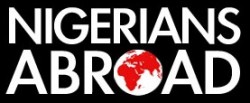


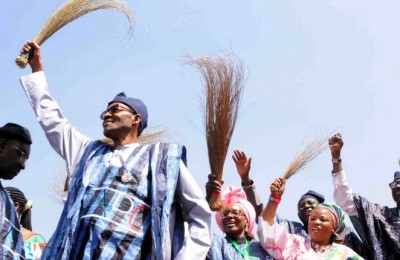
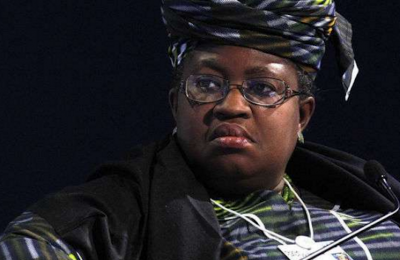
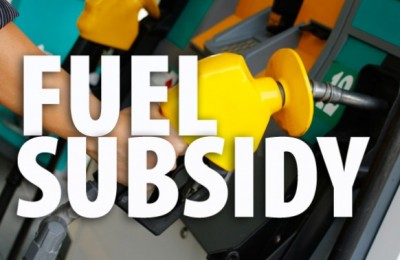



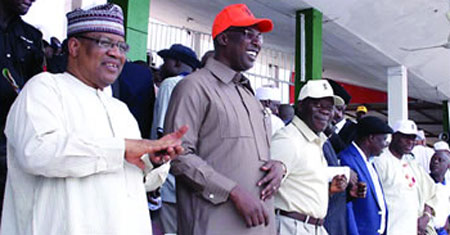





If the reason fuel subsidy was removed is for the Government to save money, it tell me how Nigeria leaders don’t care about common people. Nigeria don’t need non-sense leaders, it need people-sense leaders.
Na wa o
The road and journey is still farrrrrrrrrrrrrrrrr. Whish we don’t perish on the way.
Na wa ooooooooooo
Please, let us settle all debts with the produce of the loots first.